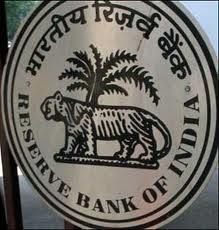 With a solution to 5-month-old Rs 5,600-crore (Rs 56-billion) NSEL scam still elusive, the Reserve Bank has said it is not advisable to let a single group of shareholders to dominate the functioning of any exchange.
With a solution to 5-month-old Rs 5,600-crore (Rs 56-billion) NSEL scam still elusive, the Reserve Bank has said it is not advisable to let a single group of shareholders to dominate the functioning of any exchange.
"The (NSEL) episode has emphasised the need for ensuring that no single shareholder or a group of shareholders is permitted to dominate the functioning of the exchange or exercise management control," the RBI said in its half-yearly Financial Stability Report released on Monday.
The scam, which encircles the Jignesh Shah-led companies, has ‘revealed certain systemic concerns with regard to ownership and governance arrangements in exchanges and common ownership of exchanges and existing technology platforms.’
The RBI view comes within a fortnight of the sectoral regulator FMC in a report stating that the promoter Shah and promoter company Financial Technologies are not eligible to run the crippled exchange, an order challenged by the group in the Bombay High Court.
The RBI report says the NSEL scam highlighted the gap in the regulation of commodity spot exchanges and added that ‘we need to comprehensively address the problems in commodity spot markets.’
It can be noted that the government on July 30 ordered closure of the NSEL following irregularities, which later revealed that the spot exchange owed a whopping Rs 5,600 crore in dues to thousands of investors and dozens of brokers/ intermediaries.
On December 18, in a severe indictment of the NSEL promoters, commodity market regulator FMC said Shah and his firm Financial Technologies were not 'fit and proper' to run any exchange in the country and charged him with being the ‘highest beneficiary’
In an 80-page order, the FMC held that FTIL is not a 'fit and proper entity' to hold anything more than 2 per cent shareholding in the MCX.
FTIL currently has 26 per cent stake in MCX, the country's largest commodity exchange, and will need to cut its stake following the FMC order.
On December 20, NSEL defaulted for the 19th time in a row paying only Rs 12.64 crore (Rs 126.4 million) against an agreed amount of Rs 174.72 crore (Rs 1.74 billion).
With that pay-out, the exchange has so far settled only about Rs 276.14 crore (Rs 2.76 billion) against about Rs 5,600 -crore (Rs 56-billion) dues to 13,000 investors. As a result of the unearthing of the scam, the Finance Ministry has brought the Forward Markets Commission under its ambit to ensure better coordination among various financial sector regulators.
The RBI report also said there is a need to protect the customers against online frauds, SMS alerts, ads inducing to share account details, cloning of credit/debit cards etc and asked banks to evolve comprehensive policy on online banking services.
It also noted that total amount involved in cases of fraud committed by debtors has increased over the past three years, even though the number of frauds has decreased.
The report said instances of frauds involving over Rs 50 crore (Rs 500 million) or more has gone up to 45 in FY13 from just three in FY10.
"The rise in incidences of frauds in large value loan accounts is a concern and concerted action to improve checks and balances and deterrent action will be required to tackle the problem," it said.










 © 2025
© 2025